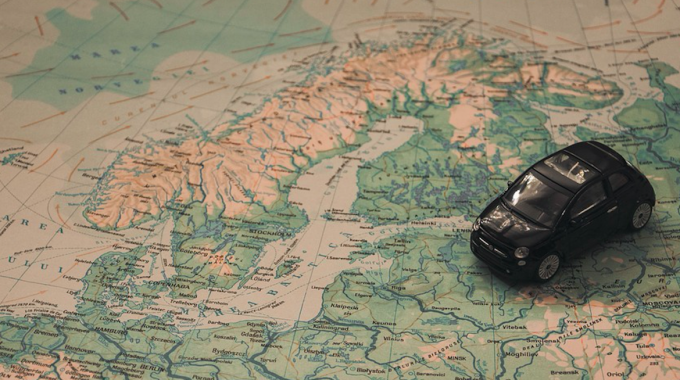
Pride and Prejudice
How do Northern Europeans see Southern Europeans? How do Eastern Europeans see Western Europeans? And vice versa. In this article, Dr Evert Van de Poll continues to explore the differences, perceived or real, among the peoples of Europe.
This is an excerpt of Evert Van de Poll’s book ‘Christian faith and the making of Europe’. To be published soon.
North versus South
Another factor that determines the development of culture is the geographic situation of a people. This has to do with climate, natural resources, arable land, vegetation, and therefore with culture, because the natural and weather conditions influence agriculture, food patterns, lifestyle and traditions of a given society. Geographical location has a bearing on commercial routes, and access to ports.
For a start, there is a north and there is a south in Europe. The colder the climate, the harder one must work to survive and make living conditions more pleasant. Another consequence of climate: families in the north live more indoors, in the south more outdoors. Sociologists speak of wine cultures in the south and beer cultures in the north. (And of vodka cultures in the east.)
At the time of the Roman Empire, the north south division largely coincided with the border between the ‘civilised’ peoples linked together by a Greco-Roman culture, and the ‘uncivilised’ Barbarians living north of them– or south of them, such as the people in North Africa who have retained that name, Berbers.The cultural north south divide has survived until today. This is to a large extent due to the fact the Catholicism remained dominant in the south, whereas the influence of Protestantism was strongest in the north. Both have had a deep impact on the general culture.
Life in the Mediterranean regions is not quite like elsewhere. In the south people often hang on to the old idea that they have a richer culture, a more pleasant way of life. In the north, it seems that things are more organised, that people work harder or rather more efficiently. In the south extended family structures are more important than any other social structure. Parents help their children with financial aid much longer than they generally do in northern countries. Whether these perceptions are true or imagined is not so important, they are part of the culture. They also give rise to prejudices, in both directions. Be this as it may, northerners like to spend their holidays there, not only because of the climate also because of the different cultural environment.
It is a matter of interpretation, or ‘feeling’ if you like,where the north ends and the south begins. Belgium for instance is sometimes called the most northern part of Latin Europe while people in northern France point out that the Latin mentality is only found in the southern part of their country. But wherever you draw the line, north and south are different.
West versus East
There is also a west and an east. This has to do with different ethnic origins. Most people in the east are descendants of the Slavic tribes that have migrated from regions beyond Europe. The Romans as well as the Germanic peoples after them looked down on the Slavs, as they did on the other peoples that came from Asia and invaded Europe (Huns, Mongols).
Slavs became slaves around the beginning of the ninth century when the Holy Roman Empire tried to stabilise a German-Slav frontier. They were sold on the markets of Verdun and other major cities in the Christian world. By the 1100s, stabilisation had given way to wars of expansion that did not end until 1410, when the Poles crushed the knights of the German Teutonic Order at Grunwald in north-central Poland. While the practice of slavery gradually disappeared, the feeling of inequality between west and east has remained, even after the Slavic peoples were evangelised and incorporated in the Christian realm.
How painful must it be for Slavic people learning a Western language, to discover that their ethnic name has received the meaning of an enslaved person, while in their own languages the word ‘slava’ really means glory or honour. It is a word of praise and celebration, and even for worship!
Slava Bogu, praise God!
Dr Evert van de Poll
Professor of Religious Science and Missiology at Evangelical Theological Faculty, Leuven and a pastor with the French Baptist Federation.

This Post Has 0 Comments